The Mystery of the Fourth Plenary Session — 60 Committee Members Disappear, 14 Generals Missing. Video screen shot
[People News] The 20th CCP Fourth Plenary Session concluded on October 23. The outside world had expected it to be a major “showdown” on personnel matters, but the result was unexpected. After the meeting ended, there were no anticipated high-level reshuffles—Xi Jinping retained his three positions as Party, government, and military head. The military promoted only one person. Many key posts remain vacant, and a batch of generals who were supposed to be promoted were collectively “skipped.” The absentee rate hit a historic high, leaving many mysteries unresolved.
According to official data, the 20th Central Committee has 205 full members. Official reports said only 168 attended this meeting—one had died and 36 were absent. Of those, only 10 had been officially expelled from the Party, leaving 26 senior officials missing. By convention, this means these people are in trouble.
There are also 171 alternate members of the 20th Central Committee. Officials said only 147 attended; 24 alternates were absent, and only 4 were formally announced as expelled. The rest were unnamed—likely also purged within the Party.
Thus, at this Fourth Plenary Session, among 376 full and alternate members, 61 were absent (one deceased, 60 unaccounted for), presumably due to political trouble.
Disturbing Numbers in the Military
The figures in the military are even more alarming. Of the nine generals expelled, only Wang Houbin was not a Central Committee member—the rest were at that level. Based on CCTV footage, of the military’s 42 Central Committee members, 27 were absent, including 22 full generals. Beyond the 8 generals officially expelled, another 14 generals are “missing.” Who are they? Where did they go? What happened behind the scenes?
Now, who was the only person promoted?
On the closing day, state media announced a single military appointment: Zhang Shengmin, Secretary of the Central Military Commission (CMC) Discipline Inspection Commission, was promoted to Vice-Chairman of the CMC—the only senior officer promoted at the meeting.
This carries a lot of meaning.
When the 20th CMC was formed in 2022, it had seven members: Chairman Xi Jinping; two vice-chairmen Zhang Youxia and He Weidong; and members Li Shangfu, Liu Zhenli, Miao Hua, and Zhang Shengmin. By this year, Li Shangfu, Miao Hua, and He Weidong had all fallen. After Zhang Shengmin’s promotion, the CMC remains a four-member skeleton.
Who will replace Miao Hua as head of the Political Work Department? Will Zhang Shengmin’s former post as CMC Discipline Chief get a successor? What about the vacant positions in the Rocket Force, Eastern Theater Command, Army, Navy, and Armed Police? No results yet.
Meanwhile, the session elevated 11 alternates to full Central Committee members, but 7 expected promotions didn’t happen—4 of them key military figures:
-
Wang Liyan, Deputy Commander, Rocket Force
-
Wang Kangping, Commander, Joint Logistics Support Force
-
Fang Yongxiang, Director, CMC General Office
-
Shi Zhenglu, Commander, Northern Theater Army
According to Party convention, their omission suggests serious problems. These men were viewed as likely to rise, but were instead excluded.
Some missing Central Committee members have already been officially announced as fallen: Lan Tianli (former Guangxi governor), Wang Lixia (former Inner Mongolia governor), Yi Huiman (former CSRC chairman), Fei Dongbin (former Railway Administration chief), and Wu Shenghua (former Guizhou executive vice-governor). These are still under investigation and not yet expelled—expected to be dealt with at the next, Fifth Plenary Session.
Three “missing” Central Committee members—Liu Jianchao (former head of the CCP International Liaison Department), Jin Zhuanglong (former MIIT minister), and Lei Fan (former executive deputy director of the Central Military-Civil Fusion Office)—also did not attend.
The session’s communiqué confirmed the expulsion of 10 full members and 4 alternates, including major military figures He Weidong, Miao Hua, Lin Xiangyang, and Zhang Fengzhong. Most came from key posts in the Rocket Force, CMC system, or Joint Operations Command.
Zhang Shengmin’s Background
Age 67, Zhang Shengmin spent his career in the Rocket Force’s predecessor—the Second Artillery Corps. Appointed CMC Discipline Chief in 2017, he led major anti-corruption drives in the military. His promotion raises the question: is he Xi’s man or anti-Xi’s man? Some think Xi rewarded him for anti-corruption results; others believe that although he helped Xi purge generals like Fang Fenghui and Zhang Yang, his latest actions—helping Zhang Youxia take down Xi’s loyalists He Weidong and Miao Hua—plus his past work under Zhang Youxia—make him appear closer to the Zhang Youxia faction.
In any case, Zhang Shengmin’s former position remains vacant, showing that the military shake-up isn’t over.
Overall, the plenary session failed to fill vacancies and instead left more questions: a weakened four-member CMC, skipped promotions, and lower attendance—all signs that military purges continue.
Numerous Generals Fallen or Missing
Dajiyuancolumnist Wang Youqun analyzed that at least six lieutenant generals have mysteriously vanished from the promotion list:
-
Fang Yongxiang, Xi’s trusted military secretary and CMC General Office Director
-
Wang Liyan, Rocket Force Deputy Commander
-
Ding Xingnong, Rocket Force Deputy Political Commissar
-
Wang Kangping, Commander, Joint Logistics Support Force
-
Shi Zhenglu, Commander, Northern Theater Army
-
Zhang Fengzhong, Director, Rocket Force Political Work Department
The first five were skipped for promotion; the last, Zhang Fengzhong, was expelled. Wang Youqun believes all six are likely in trouble.
Each is closely linked to fallen He Weidong and Miao Hua.
For example, Fang Yongxiang—once Xi’s most trusted “military secretary”—ran the CMC General Office, Xi’s communication hub with the entire PLA. A former assistant to Miao Hua, he shared a close relationship. After Miao and He fell, Fang missed three major military meetings chaired by Xi—a highly unusual sign. His non-promotion now virtually confirms his fall from the inner circle.
Wang Liyan, former deputy director of the CMC General Office, later commanded the Joint Logistics Support Force and then became Rocket Force Deputy Commander. The Rocket Force has been a corruption disaster zone—most previous chiefs have been investigated. Whether Wang Liyan is tied to ex-political commissar Gao Daguang’s case remains unclear, but problems seem significant.
Wang Kangping, a former pilot, rose from Eastern Theater Deputy Commander to Joint Logistics Commander, mainly thanks to He Weidong and Miao Hua. With both patrons gone, he’s naturally on the “watch list.”
Ding Xingnong and Shi Zhenglu were evaluated by Miao Hua. Even if not directly implicated, their units—the Rocket Force, Strategic Support Force, and Equipment Development Department—have all faced wide-ranging probes in the past two years, making a clean escape unlikely.
As for Zhang Fengzhong, already expelled, the case is severe. A long-time Rocket Force political officer, every promotion of his traced back to Miao Hua—suggesting involvement in the “Miao Hua network collapse.”
Wang Youqun said that from the nine fallen full generals to these six skipped lieutenant generals, nearly all were Xi loyalists—core of the so-called “Xi family army.” This turmoil digs another layer under Xi’s own foundation.
The Fourth Plenum appears to cement personnel decisions but in fact reveals a power vacuum—the PLA power struggle continues.
Full Generals Down Since the 20th Congress
According to Sing Tao Daily, 14 full generals have fallen since the 20th Congress:
-
He Weidong (former Politburo member, CMC Vice-Chair)
-
Miao Hua (former CMC member, Director of Political Work Dept.)
-
Li Shangfu (former State Councilor, Defense Minister)
-
Wei Fenghe (former State Councilor, Defense Minister)
-
He Hongjun (former Deputy Director, Political Work Dept.)
-
Wang Xiubin (former Executive Deputy Director, Joint Operations Command Center)
-
Lin Xiangyang (former Eastern Theater Commander)
-
Qin Shutong (former Army Political Commissar)
-
Yuan Huazhi (former Navy Political Commissar)
-
Wang Chunning (former Armed Police Commander)
-
Wang Houbin (former Rocket Force Commander)
-
Li Yuchao (former Rocket Force Commander)
-
Zhou Yaning (former Rocket Force Commander)
-
Ding Laihang (former Air Force Commander)
All have been officially purged.
And the 14 missing generals mentioned earlier are:
-
Liu Qingsong (Political Commissar, Eastern Theater)
-
Wu Yanan (Commander, Southern Theater)
-
Wang Haijiang (Commander, Western Theater)
-
Huang Ming (Commander, Northern Theater)
-
Xu Deqing (former Political Commissar, Central Theater)
-
Li Qiaoming (former Army Commander)
-
Hu Zhongming (Navy Commander)
-
Xu Xisheng (Rocket Force Political Commissar)
-
Xu Zhongbo (former Rocket Force Political Commissar)
-
Zhang Hongbing (former Armed Police Political Commissar)
-
Xu Xueqiang (Minister, CMC Equipment Development Dept.)
-
Wang Renhua (Secretary, CMC Political-Legal Committee)
-
Ju Gansheng (former Commander, Strategic Support Force)
-
Li Wei (Political Commissar, Information Support Force)
Hidden War in the Military: Zhang Youxia’s Counterstrike and the Factional Power Struggle Reaches Boiling Point
Multiple sources close to the military told The Dajiyuanthat the rift between Xi Jinping and Zhang Youxia, vice chairman of the Central Military Commission (CMC), has long been an open secret. Their biggest disagreement concerns whether to launch a military attack on Taiwan.
Zhang Youxia, a veteran combat commander, has repeatedly opposed a hasty invasion of Taiwan in internal meetings. His reasoning: Taiwan’s defense network ranks second only to Israel’s; with the U.S., Japan, Australia, and the “Five Eyes” alliance possibly intervening, the PLA could be dragged into a prolonged war of attrition. He warned that if the campaign stalled, it would not only mean military failure but also political collapse at home.
However, these words touched Xi Jinping’s most sensitive nerve. To Xi, such “contradictory voices” were tantamount to “shaking the army’s loyalty.” This became the trigger for his subsequent purge of military generals.
According to sources, Xi then used the pretext of “rectifying” the Rocket Force and the equipment system to systematically weaken Zhang Youxia’s power base.
But the situation took a dramatic turn — Zhang Youxia’s camp launched a swift counterattack, pushing Miao Hua, He Weidong, and several other pro-Xi generals into investigation. As a result, Zhang Youxia retained his vice-chairmanship, and the “Zhang faction” within the military regained its footing.
Observers familiar with the PLA called it “a life-and-death struggle inside the army.”
Xi Jinping had hoped to reassert full control over the military through purges, but unexpectedly Zhang Youxia turned the tables, forcing Xi to compromise at the Fourth Plenum.
Zhang Shengmin was promoted to CMC vice-chairman but did not enter the Politburo—a sign that the purge continues, while also revealing a fragile balance between the two camps.
Just days before the session, on October 17, the CCP officially announced the expulsion of nine full generals from both Party and military ranks, including Vice-Chairman He Weidong and CMC member Miao Hua.
Analysts believe this unprecedented purge of such high-ranking officers was a counteroffensive by Zhang Youxia, a crucial move to consolidate his hold over the armed forces, since He and Miao had been Xi’s closest military aides.
A former lecturer at the National Defense University told The Dajiyuanthat Zhang Youxia represents the “technical” or “combat-pragmatic” faction, focused on realism and risk assessment; Xi insists on “politics first”, where loyalty outweighs competence. This conflict of doctrines has severely strained the CMC, and the Rocket Force’s repeated purges over the past two years are an extension of this struggle.
The Washington Post similarly analyzed that the mass investigations of Rocket Force officers reveal deep divisions within the PLA over whether and when to attack Taiwan. The U.S. Department of Defense assessment also noted that this “technical vs. political” rift may determine the CCP’s future military trajectory.
Power Appears Stable, but Under the Surface Turmoil Persists
Though the Fourth Plenary Session has ended, the situation is far from calm. The key question is: Has Xi Jinping truly regained control of the military? The answer is probably not that simple.
A People’s Daily analysis pointed out that there was no sign of Xi’s resignation or a power transfer, and on the surface, he remains general secretary, state president, and CMC chairman. But retaining titles does not necessarily mean holding real power.
During more than a year of military purges, Xi’s control has been badly weakened. CMC Discipline Chief Zhang Shengmin, with Zhang Youxia’s backing, led the investigations of several top “Xi family army” generals such as He Weidong and Miao Hua. Now, Zhang Shengmin’s promotion to vice-chairman effectively forms a joint front with Zhang Youxia, creating a situation where Xi is “chairman in name, constrained in practice.”
This, analysts say, is a forced compromise. By Party tradition, the vice-chairman must be nominated by the chairman. If Xi truly resented Zhang Shengmin, why approve his promotion? Most likely because he had no choice—to keep his chairman title and the façade of stability, Xi had to yield.
This scenario echoes the Hu Jintao era, when Hu retained his formal titles but real control lay with Xu Caihou and Guo Boxiong. Today, Xi may face a similar fate—titles intact, but command authority uncertain.
In essence, the Fourth Plenum was “calm on the surface, crisis underneath.” Only 315 of the 376 full and alternate Central Committee members attended; 61 absences mark the highest no-show rate in CCP history—unprecedented.
Personnel Dynamics
Among the 11 new full members, none came from the military—a clear signal that the purge continues. Those skipped—Wang Liyan, Wang Kangping, Ding Xingnong, Fang Yongxiang, and Shi Zhenglu—are almost all Xi’s personal appointees, now sidelined. The CMC’s vacancies remain unfilled, implying today’s “balance” is only temporary.
Analysts conclude that the Fourth Plenum’s outcome was not a victory for Xi, but rather a power-sharing compromise forced by Zhang Youxia and Party elders. The double expulsion of He Weidong and Miao Hua was a “pre-emptive strike” by Zhang’s camp—done first, formalized later—while the Plenum merely rubber-stamped the decision.
In plain terms, this was a temporary political truce:
-
Xi Jinping keeps his titles to stabilize Party morale;
-
Zhang Youxia retains control of the military to keep the troops in line;
-
Party elders stepped in to prevent the struggle from spiraling into chaos—or perhaps because they have yet to decide how to handle the aftermath.
Thus, they enforced a façade of unity.
But this balance is as fragile as glass. Xi will not tolerate being sidelined and will surely attempt a counter-offensive; Zhang Youxia and the “technical faction” risk retaliation if they relax their guard.
The battle for military control may appear paused but has merely entered a “cold war stage.” The compromise is just the prelude to deeper conflict—the real showdown is yet to come.
The list of absent members from the Fourth Plenum, analysts warn, may very well become the next round of “tiger-hunting” targets.
Stay tuned for ongoing coverage.

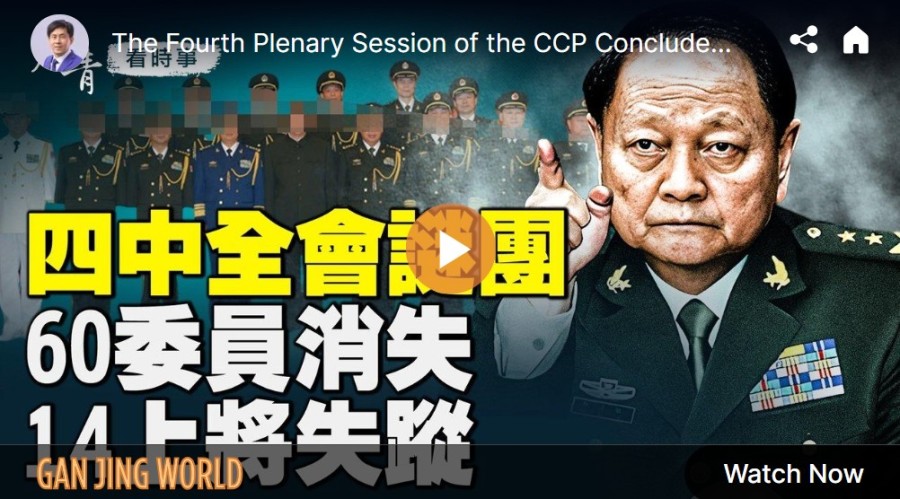

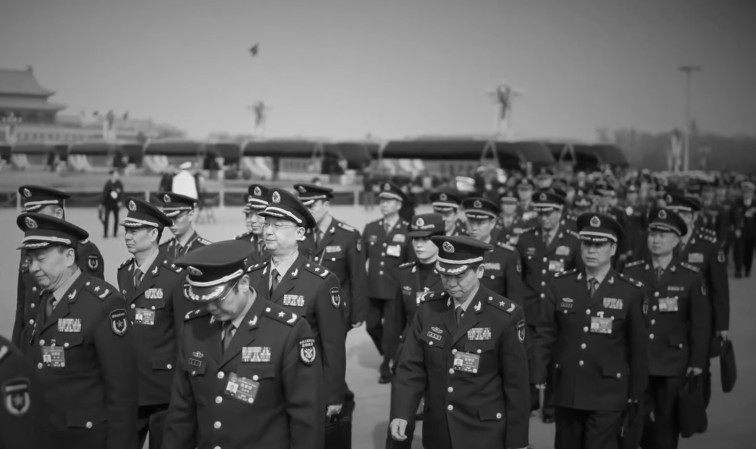

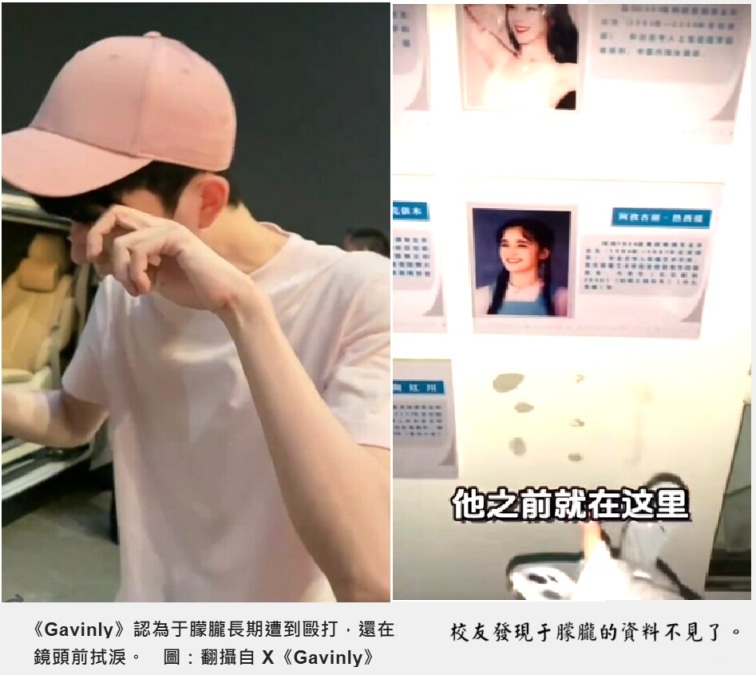

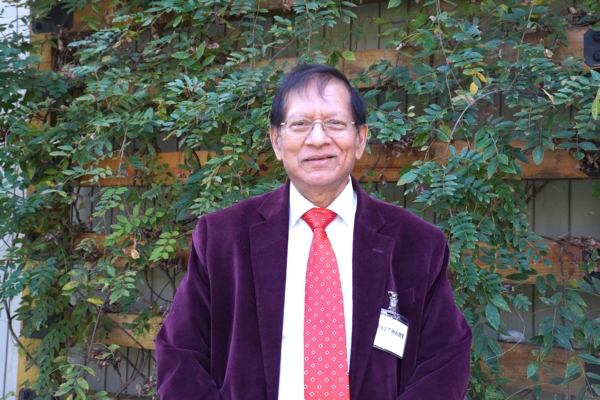

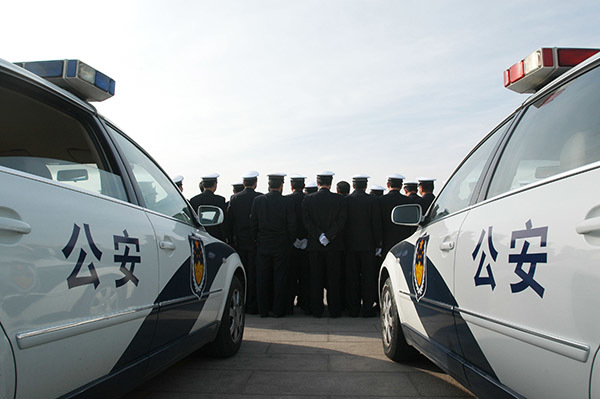

News magazine bootstrap themes!
I like this themes, fast loading and look profesional
Thank you Carlos!
You're welcome!
Please support me with give positive rating!
Yes Sure!